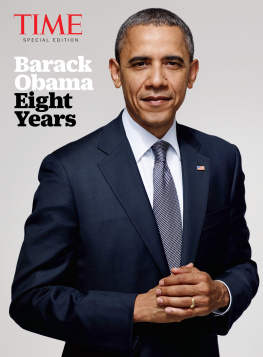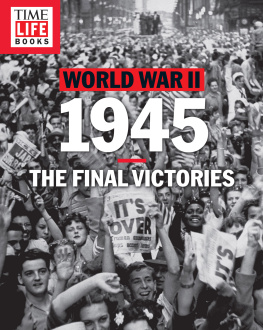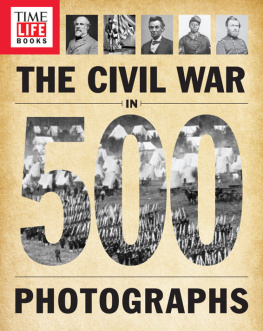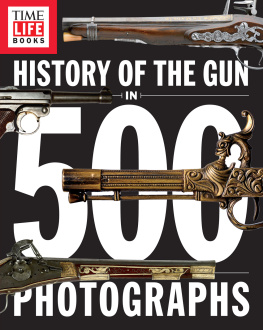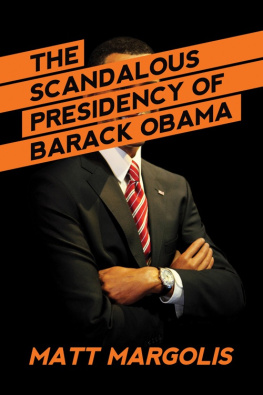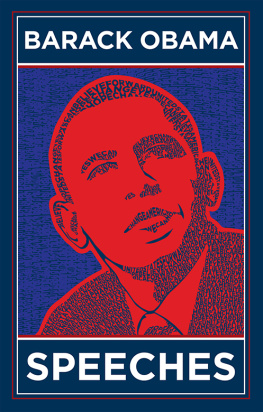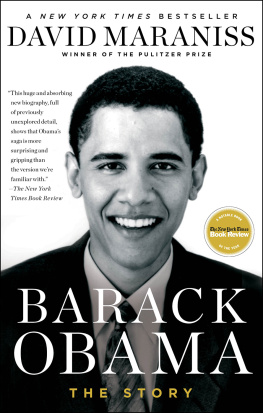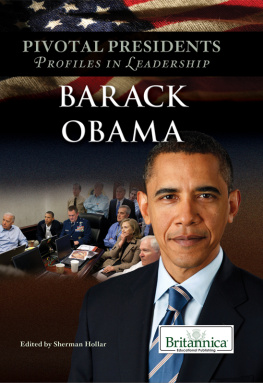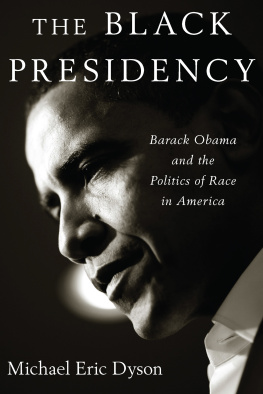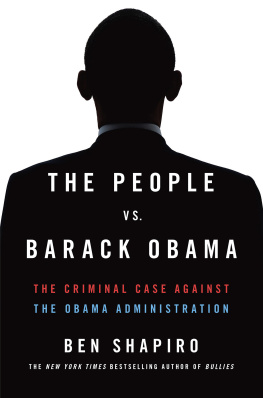

SPECIAL EDITION
Barack Obama
Eight Years
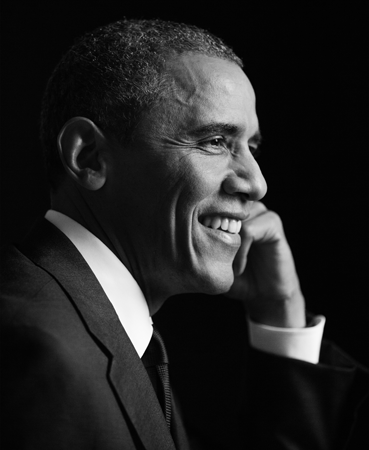
A PRESIDENT BUILDS HIS IDENTITY
From his first day in office, Barack Obama was a different kind of commander in chief
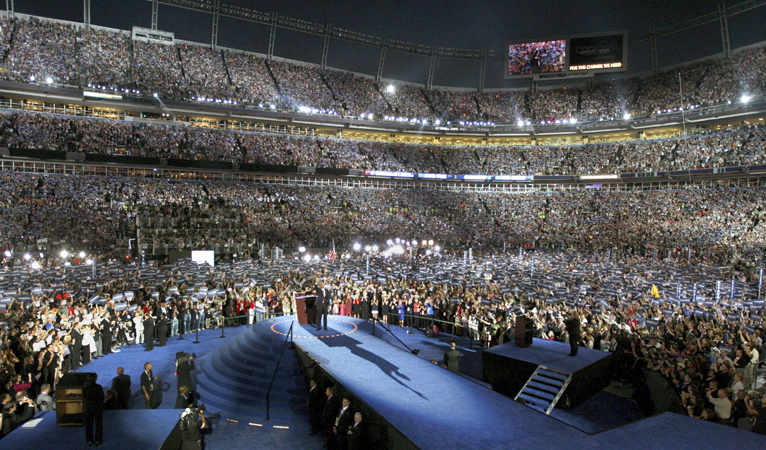
The acceptance speech, Democratic National Convention, Denver, Aug. 28, 2008.
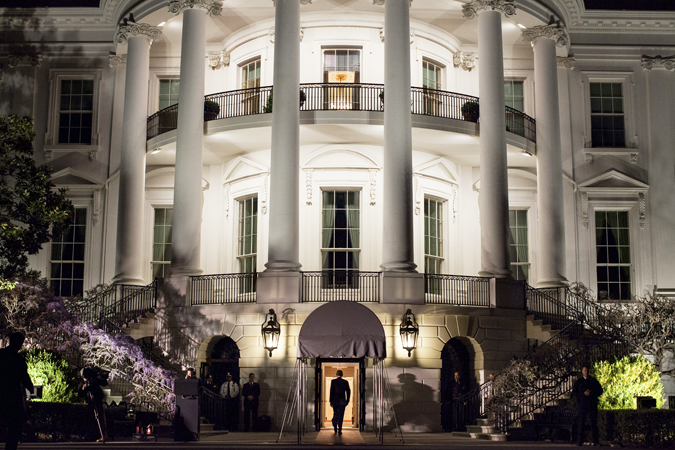
The president comes home, through the White Houses South Portico, after a day of speaking in Vermont and Maine in 2012.
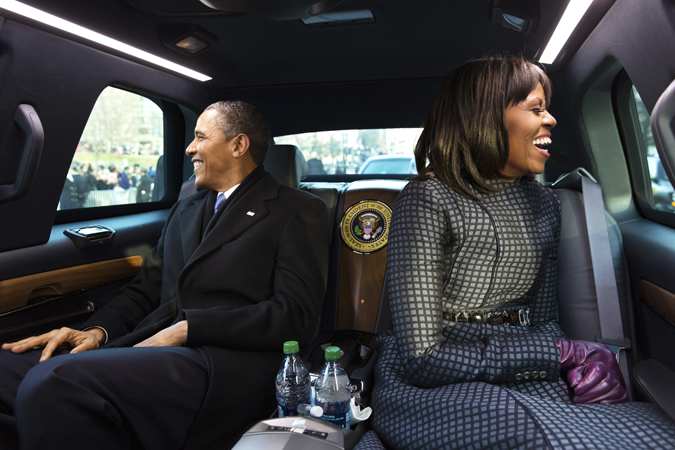
President Obama and First Lady Michelle Obama in the inaugural parade, Pennsylvania Avenue, Jan. 21, 2013.
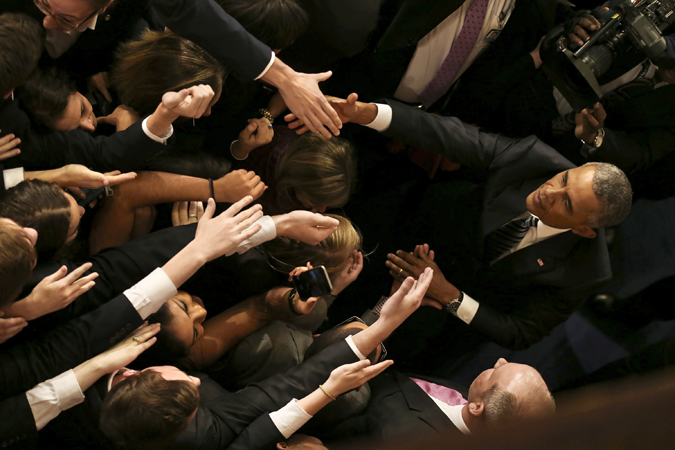
President Obama is greeted by lawmakers after his last State of the Union address, Jan. 12, 2016.
HONOR AND EFFORT
He revived the economy and reoriented foreign policy. His promise of hope and change proved harder to deliver
By David Von Drehle
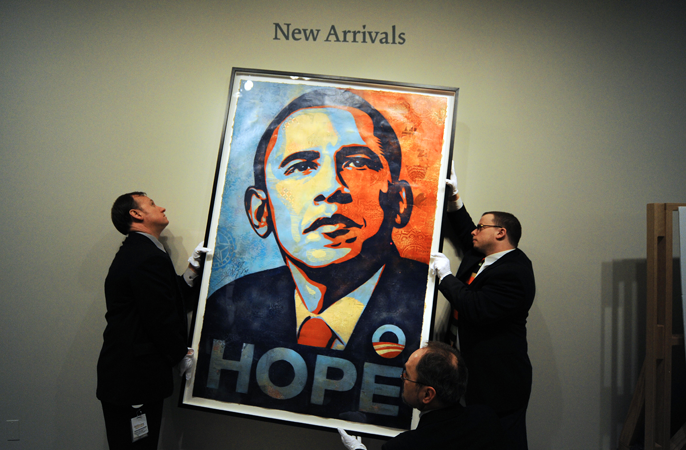
Workers install Shepard Faireys campaign-poster portrait of Barack Obama at the National Portrait Gallery in 2009.
Barack Obama entered the White House as something new in American history. He wasnt chosen on the basis of experience, nor for his role as leader of a party or a movement. He had not been a governor or a general or a veteran legislator. He did not become president by the accident of his predecessors death in office.
Obama was elected purely for himselfhis message, his persona and what he symbolized. In 48 brief months, he rose from the obscurity of a state legislature to become the first Democrat in more than three decades to win more than half of the popular vote. Messenger and message were inseparable; he offered himself as Exhibit A in the case for hope and change. Obama was a mirror in which millions of people saw their cherished ideals reflected: tolerance, cooperation, equality, justice.
After two bruising and tumultuous terms in officea period of economic crisis and geopolitical upheavalits difficult to recall how the young candidate riveted the world simply by being Obama. As a mere nominee, not yet elected, he drew an estimated crowd of 200,000 peoplein Germany. He filled a football stadium for his acceptance speech, a city park for his victory speech and, of course, much of the National Mall for his first inauguration. In October 2009, the Nobel Prize committee awarded him its most prestigious honor, the Peace Prize, before hed had time to accomplish much at all. Only very rarely has a person to the same extent as Obama captured the worlds attention and given its people hope for a better future, the prize citation declared. A Nobel Peace Prize just for being Obama.
In a sense, there was nowhere to go but down. The most exalted position in American life has a way of humbling its occupants. Obama leaves office more human than he entered it, a mere mortal with a track record and the gray hair to show for it. And that track record contains much more than his enemiesor even many of his friendshave been ready to acknowledge.
Taking office in the midst of an economic meltdown, Obama seized on the massive federal response to make record investments in education initiatives, environmental research, industrial modernization and, most famously, health-care reform. He poured money into basic medical and scientific research and supercharged the U.S. alternative-energy sector. His high-stakes reorientation of American foreign policy worries many experts, and the results might not be fully understood for years. But the effort cannot be called small.
Indeed, Obamas record is bigger and more substantial than even he allowed himself to admit through much of his time in office. A candidate known for his stirring speeches struggled, as president, to sell the public on what he was doing and why he was doing it.
Journalist Michael Grunwald has documented the scope of one of Obamas ambitious achievements: the stimulus package known as the American Recovery and Reinvestment Act. In constant dollars, the ARRA was more than 50 percent bigger than the entire New Deal, twice as big as the Louisiana Purchase and Marshall Plans combined, Grunwald wrote in his 2012 book, The New New Deal: The Hidden Story of Change in the Obama Era . It was the biggest... education reform bill since the Great Society, he continued. The biggest foray into industrial policy since FDR, biggest expansion of antipoverty initiatives since Lyndon Johnson, biggest middle-class tax cut since Ronald Reagan, biggest infusion of research money ever. And that was just one of several massive Obama undertakings. He stormed into the banking, automotive and health-care industries, winning changes that had been mulled, debated and dithered over for decades.
Yet the president was often downbeatseemingly discouragedabout the impact he was having. He complained loudly and often of the obstructions put in his path by his Republican opponents. The American people may have voted for divided government, but they didnt vote for a dysfunctional government, Obama said after the GOP captured the House of Representatives in 2010. Voters could be forgiven if they concluded that Obama must not be getting much done.
It was as if Obama had fallen under his own spell and began measuring himself not by real wins in the political trenches but by the ephemeral goals of his soaring speeches. This is our moment, Obama had said on the night he won the election. This is our time to put our people back to work and open doors of opportunity for our kids; to restore prosperity and promote the cause of peace; to reclaim the American dream and reaffirm that fundamental truth that, out of many, we are one. At points in his presidency, Obama couldnt hide his disappointment that his every dream had not come true.
Through eight years in office, Barack Obama used all the tools in a presidents kit to make significant changes: laws, rules, executive orders and the bully pulpit. Yet he couldnt change the nature of politics itself. The irony of Obamas presidency is that he achieved more than most presidentsyet millions of Americans grew convinced during his administration that Washington cant get anything done.
THE WORLD ECONOMY WAS PLUNGING LIKE a runaway bobsled as Obama took the oath of office in January 2009 before one of the largest gatherings in the history of the nations capital. After a steep run-up in housing prices in the U.S. and elsewhere, the bursting bubble sent millions of homes into foreclosure. This mortgage crisis in turn blazed through the global banking system, and only an extraordinary intervention by lame-duck president George W. Bush prevented a complete financial collapse.
Obama inherited the wreckage of what proved to be the worst U.S. recession since the 1930s. The economy contracted by more than 8%. Unemployment doubled, from 5% to 10%a net loss of some 8 million jobs. Average housing prices dropped by 30%. The cumulative wealth of Americans fell by nearly a quarter: a loss on paper of some $15 trillion. As the Great Recession echoed around the world, Europes economy went into reverse. Nations from Greece to Iceland flirted with default on their sovereign debts, while emerging markets from Rio to New Delhi and Moscow to Beijing began to sputter and stall.
Next page
